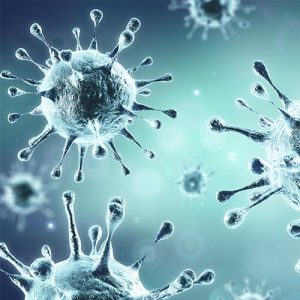An English study on the effectiveness of washing processes has shown that coronaviruses are still infectious on textiles for up to three days and must be thermally disinfected. The study gives the green light to professional textile care: all professional washing processes performed well in the study and were able to destroy traces of the coronaviruses. In home equipment, on the other hand, the risk of transmission is significantly higher: covid-19 viruses and other pathogenic germs remain on textiles longer, especially at low temperatures, and can be transmitted more easily when laundry is processed at home. The study was commissioned by the Textile Services Association (TSA) together with other industry associations such as the German Dry Cleaning Association (DTV).
Professional clothing can be a carrier
Textile care professionals have long known that contaminated laundry can transmit pathogens. It is therefore important that potentially infected laundry is separated from other dirty laundry and processed separately. This can reduce the risk of pathogens being transmitted via surfaces or work clothing. The study from England showed that coronaviruses persist on polyester and blended fabrics and on cotton fabrics. The strain of coronavirus tested (HCoV-OC43) remained contagious for 72 hours on polyester and 24 hours on cotton. According to the researchers, the virus can transfer from a polyester fabric to other surfaces for up to 72 hours. Thus, work clothes that employees in nursing professions, for example, wear and take home with them can pose a transmission risk. The virus could thus also be transmitted to other surfaces. Workwear is predominantly made of mixed cotton and polyester fabrics.
Professional washing reduces risk
According to the results of the study, all viruses could be rendered harmless during washing with the right combination of movement, temperature and detergent at a temperature of 40 °C, even in household appliances. However, the risk from home cleaning lies elsewhere: when laundry is sorted at home and the washing machine is loaded, pathogens can be transmitted to family members or other contacts. With professional textile care, these risks of cross-contamination can be avoided. On professional equipment, it is also not possible for pathogens to settle at neuralgic points such as the pump or drawer, where viruses can remain infectious due to the lack of heat. For this reason, experts from the German Textile Cleaning Association (DTV) advise that workwear, especially from the healthcare and nursing sectors, should not be washed at home but professionally cleaned.
We will be happy to recommend the optimum STAHL laundry machines for your requirements.
Source: https://www.rw-textilservice.de/studie-bestaetigt-professionelle-textilpflege-vernichtet-corona/150/7505/411128




